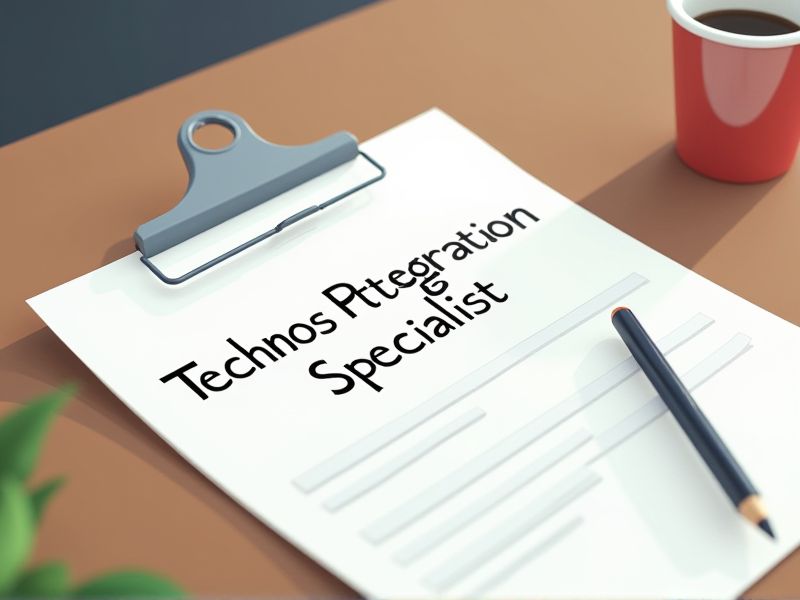
Technology Integration Specialists play a pivotal role in blending educational techniques with technological advancements, necessitating specific certifications to ensure proficiency and credibility. These certifications provide the technical expertise and pedagogical knowledge required to effectively support educators and students. As technology continually evolves, possessing updated certifications helps professionals stay ahead in the rapidly changing tech landscape. Here are some important certifications you may need to consider for a Technology Integration Specialist role.
ISTE Certified Educator
The ISTE Certified Educator credential gives Technology Integration Specialists an official recognition, validating their expertise in applying modern educational standards. This certification ensures they possess the skills to effectively incorporate technology into learning environments, enhancing student engagement. With a focus on current pedagogical practices, certified educators can support teachers in innovative curriculum development. Possessing this credential also aligns specialists with a network of like-minded professionals, fostering continuous learning and professional growth.
Google Certified Educator Level 1
A Google Certified Educator Level 1 credential equips Technology Integration Specialists with essential skills in Google's productivity tools, enhancing their ability to facilitate digital learning environments effectively. This certification signifies a specialist's proficiency in using Google Workspace for Education, which is crucial in training teachers to integrate technology into classrooms. Holding this certification demonstrates a commitment to improving educational practices, making the specialist more credible to educational institutions. As schools increasingly adopt digital solutions, this certification ensures the specialist is up-to-date with the latest technological advancements and can seamlessly integrate them into educational curricula.
Google Certified Educator Level 2
Possessing Google Certified Educator Level 2 validates a Technology Integration Specialist's expertise in leveraging Google tools for teaching. This certification signifies a deeper understanding of advanced features, essential for effectively integrating technology into educational environments. With the growing reliance on digital learning platforms, such certification enhances a specialist's credibility and capability. Schools prioritize candidates with such qualifications, contributing to informed decision-making and efficient technology implementation.
Apple Teacher Certification
Apple Teacher Certification equips Technology Integration Specialists with essential skills to effectively incorporate Apple products and educational resources into learning environments. Schools increasingly adopt Apple technology, making this certification vital for ensuring specialists remain adept in facilitating seamless tech integration. The certification covers innovative teaching techniques using Apple's ecosystem, enhancing the specialist's ability to support teachers and students. Continuous professional development through Apple Teacher Certification keeps specialists up-to-date with the latest technological advancements and educational strategies.
Microsoft Certified Educator
The Microsoft Certified Educator certification provides essential skills in cloud-based technology and collaboration tools, enhancing a Technology Integration Specialist's capability to implement digital education solutions. This certification validates proficiency in integrating Microsoft tools, which are prevalent in many educational settings, ensuring effective tech integration. By holding this certification, specialists can address diverse educational needs and improve teaching and learning processes. Education professionals with this credential often demonstrate enhanced problem-solving and innovation, critical for successful technology integration in classrooms.
CompTIA A+ Certification
A Technology Integration Specialist often manages and supports complex IT infrastructures, and the CompTIA A+ Certification provides foundational knowledge in hardware and software, which is critical for troubleshooting and managing these systems. The certification equips specialists with the skills to efficiently resolve technical issues, which directly impacts the seamless integration of new technologies within an organization. Employers often seek candidates with CompTIA A+ Certification as it validates a professional's ability to handle real-world IT challenges, thus ensuring smoother operations. Given the rapidly evolving tech landscape, this certification also signals a commitment to staying current with industry standards, which is essential for implementing innovative solutions.
CompTIA Network+ Certification
CompTIA Network+ certification equips a Technology Integration Specialist with a foundational understanding of network architecture, essential for designing and implementing effective technology solutions. The certification demonstrates competence in troubleshooting, ensuring seamless integration of diverse technologies across a network. It ensures the specialist is adept at maintaining network security, vital for protecting institutional data. Having this certification can enhance credibility and confidence among peers and stakeholders when discussing network-related solutions.
Cisco Certified Network Associate (CCNA)
Cisco Certified Network Associate (CCNA) lays a foundational understanding of networking principles crucial for effective technology integration. Given the evolving network infrastructures, it ensures that specialists have the skills to ensure seamless communication between devices and systems. The certification equips professionals with the necessary tools to troubleshoot and optimize systems, reducing downtime and ensuring efficient tech solutions. In the rapidly changing tech landscape, CCNA certification enhances credibility and keeps specialists aligned with current industry standards.
Adobe Certified Expert (ACE)
Possessing an Adobe Certified Expert (ACE) credential ensures a Technology Integration Specialist has validated expertise in Adobe software, enhancing their ability to integrate digital tools effectively in educational or corporate environments. The specialized knowledge gained from ACE certification helps in creating seamless user experiences and optimizing workflows, which encourages more efficient adoption of technology. Certified specialists can more credibly train and support other staff in using Adobe tools, increasing overall organization skill levels. Businesses often prefer hiring certified experts, as they bring both technical proficiency and enhanced credibility, leading to improved project outcomes.
Project Management Professional (PMP)
Project Management Professional (PMP) certification equips a Technology Integration Specialist with structured methodologies for managing complex technology projects, ensuring they remain on schedule and within budget. The certification provides specialists with a recognized framework that improves communication and coordination between cross-functional teams, essential for successful technology integration. PMP training enhances risk assessment capabilities, allowing these specialists to anticipate and mitigate potential integration challenges. Achieving PMP status contributes to higher stakeholder confidence, as it reflects commitment to high standards and best practices in managing technology-oriented projects.
Summary
By obtaining certifications, you, as a Technology Integration Specialist, enhance your expertise and credibility in the field. This improvement often leads to increased job opportunities and potential for career advancement. Organizations benefit from your updated skills, as they can implement more effective technological strategies. Additionally, this can result in improved learning outcomes and increased efficiency within educational or corporate settings.
